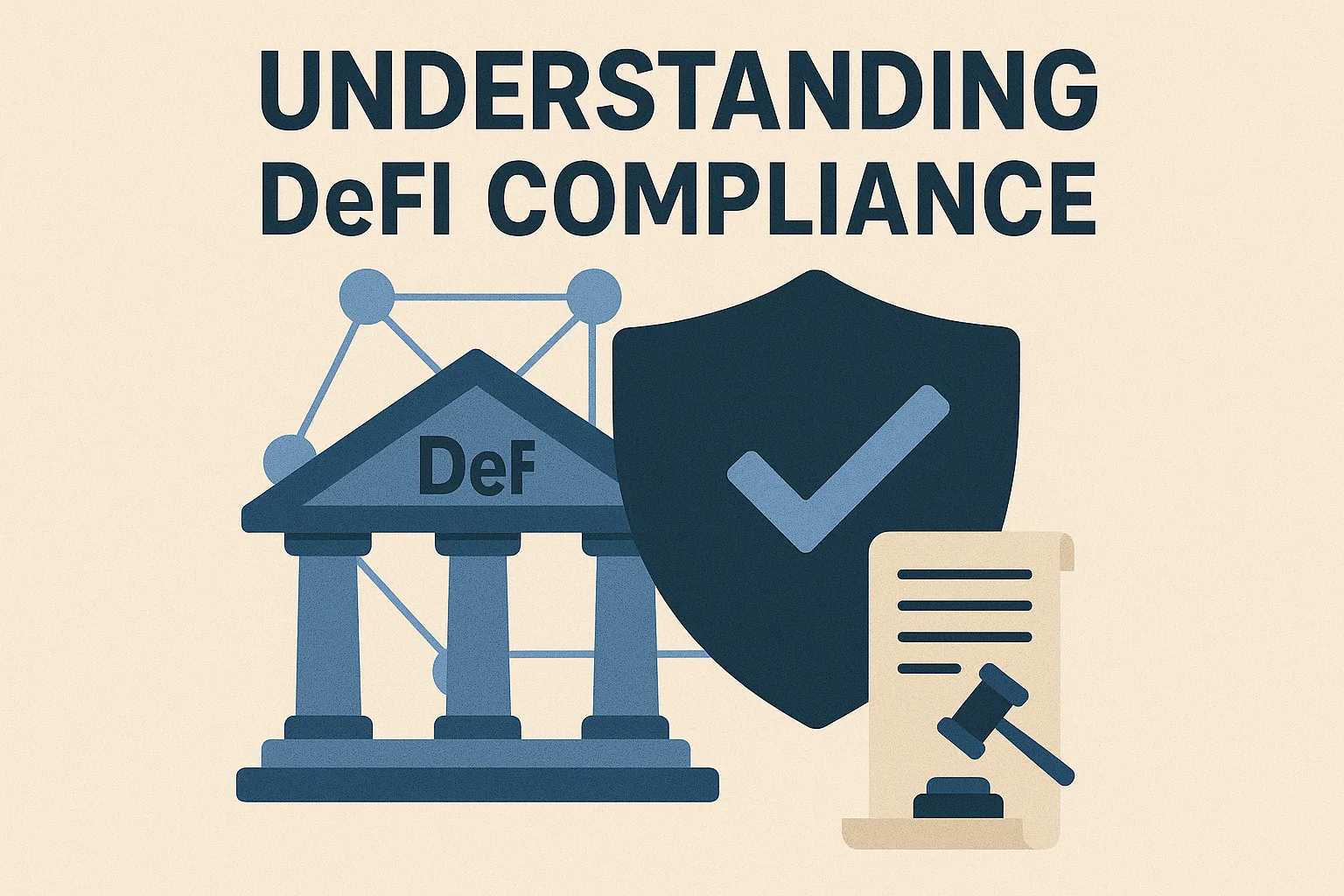Decentralised finance has redefined what financial services can look like. Smart contracts, permissionless lending, decentralised exchanges, and tokenised assets have created a parallel ecosystem outside traditional banking. However, as DeFi grows in complexity and value, understanding DeFi compliance has become critical for builders, users, and regulators alike.
While decentralisation was initially seen as a way to escape traditional regulation, today’s reality is more nuanced. Jurisdictions around the world are developing frameworks to govern DeFi activities, protect consumers, and address risks related to money laundering, fraud, and financial stability.
This article explores why DeFi compliance matters, what regulations are emerging, and how decentralised projects are adapting to new legal realities without sacrificing the principles that made DeFi attractive in the first place.
Understanding DeFi Compliance: Why it Matters

Although DeFi operates without central intermediaries, it still interacts with the real economy. Users convert fiat into crypto through on-ramps, investors rely on stablecoins pegged to real-world currencies, and many DeFi protocols manage billions in locked value. As a result, DeFi is not immune from the expectations placed on financial services providers.
Compliance in DeFi is important for several reasons:
- Preventing scams, rug pulls, and undisclosed risks
- Anti-money laundering (AML) and countering the financing of terrorism (CFT) obligations
- Ensuring that DeFi protocols cannot create systemic risks
- Allowing DeFi platforms to integrate with regulated financial institutions
Ignoring compliance entirely risks regulatory crackdowns that could stifle innovation. Conversely, thoughtful compliance design can help DeFi mature and scale sustainably.
Emerging Regulatory Approaches

Different jurisdictions are taking varied approaches to DeFi regulation. In the United States, discussions centre on how securities laws, anti-money laundering rules, and the Bank Secrecy Act apply to decentralised protocols. The Financial Action Task Force (FATF) has issued guidance suggesting that certain DeFi platform operators might qualify as Virtual Asset Service Providers (VASPs), even if the protocol itself is decentralised.
In the European Union, the Markets in Crypto-Assets (MiCA) regulation will impose disclosure, authorisation, and governance requirements on crypto issuers and service providers, although truly decentralised protocols may face lighter obligations.
In Asia and the Middle East, regulators are focusing on setting clear licensing regimes for crypto platforms, with DeFi-specific rules still under development. Singapore, Hong Kong, and the UAE are emerging as hubs balancing innovation with regulatory oversight.
Overall, the trend is clear. DeFi will not remain a legal grey area indefinitely. Protocols that want to survive and thrive must anticipate and adapt to a regulated future.
How DeFi Projects Are Adapting

Some DeFi projects are proactively embracing compliance. This does not necessarily mean sacrificing decentralisation but rather integrating compliance layers that respect user autonomy.
Several approaches are emerging:
- Permissioned pools: Protocols like Aave Arc create liquidity pools accessible only to whitelisted, KYC-verified users
- KYC at the interface level: Front-end applications may impose identity checks, while the underlying protocol remains permissionless
- Decentralised identity (DID): Projects like Spruce and Sovrin are building blockchain-based identity frameworks to enable verifiable credentials without centralised databases
- Risk disclosures and governance: DAOs are adopting more formal governance structures, publishing risk assessments, and engaging with legal counsel to navigate compliance requirements
Builders are also increasingly engaging with policymakers. DeFi Education Fund and other advocacy groups aim to ensure that regulation is informed by technical realities rather than outdated assumptions.
Challenges and Trade-Offs

DeFi compliance introduces difficult questions. How decentralised must a protocol be to avoid regulatory obligations? If a DAO votes to change risk parameters, does it become a regulated entity? Can protocols maintain privacy without enabling illicit finance? There is also a danger that poorly designed compliance measures could centralise control, undermining the very ethos of DeFi. Finding the right balance between openness and accountability will define the next phase of DeFi’s evolution.
Technology offers some solutions. Zero-knowledge proofs, verifiable credentials, and self-sovereign identity models can enable compliance without invasive surveillance. However, these tools are still maturing and not yet widely adopted.
Understanding DeFi compliance is about recognising that regulation is not necessarily the enemy of innovation. Instead, it is part of the process of building systems that can be trusted at scale. The goal should not be to recreate traditional finance under new labels but to ensure that DeFi’s benefits, accessibility, transparency, efficiency, are preserved even as it becomes a more integral part of the global financial system.














